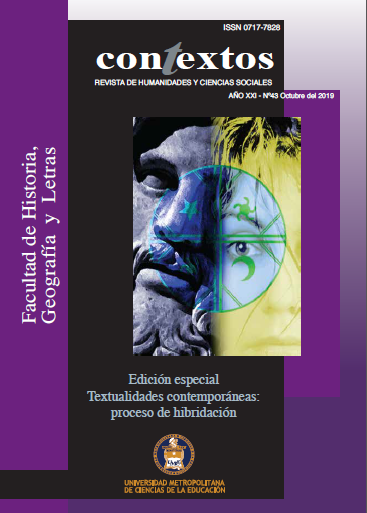Main Article Content
Sep 3, 2019
Abstract
This paper focuses on a contemporary Chilean novel: El lugar sin límites by José Donoso, 1966. The narrative text refers to a figurative space that recreates a characteristic region of Chile: Talca, an imaginary village: El Olivo, and the vineyards of the central region. In this context, the fate of the characters and their fictional stories take place. Manuel-Manuela is highlighted and the passion that he experiences, while he dances, unveiling his intimate being of a woman; don Alejo Cruz, a politician, owner and landlord; the young trucker Pancho Vega, confronted with his sexual impulses and with his desire for independence from historical hegemony. The discourses that make up the novel, conditioned by the context, the time, the socio-cultural circumstances, establish a dialogue in the interior of the work and expresses a collective experience where history and literary fiction, truth and falsehood, the chronicle and the grotesque, geography and myth, interact. In this created world, a new way of making literature: the discourse of hybridization, is manifested.
Downloads
Policies for open access journals
Authors who publish here accept the following terms: Authors will keep their copyright and will guarantee the journal the right to the first publication of their work, which will be subject to the Licence of Creative Commons acknowledgement, which allows for the use of this material only if the authorship is credited and the original source is acknowledged (the journal’s URL), and if it is not used with commercial ends and with any derivations of the original work.
Authors may adopt other non-exclusive license agreements of distribution of the published version (e.g. to save it onto a digital institutional archive or publish it in a monographic volume) only if the initial publication of this journal is indicated.
It is permitted and recommended for authors to divulge their work on the Internet (e.g. institutional digital archives or webpage) before and during the submission process, which may lead to interesting exchanges and increase the citations of the publication. (See Open Access Effect).






